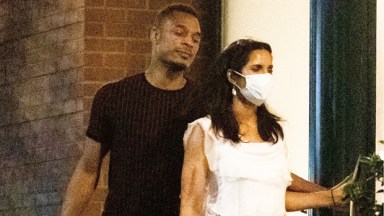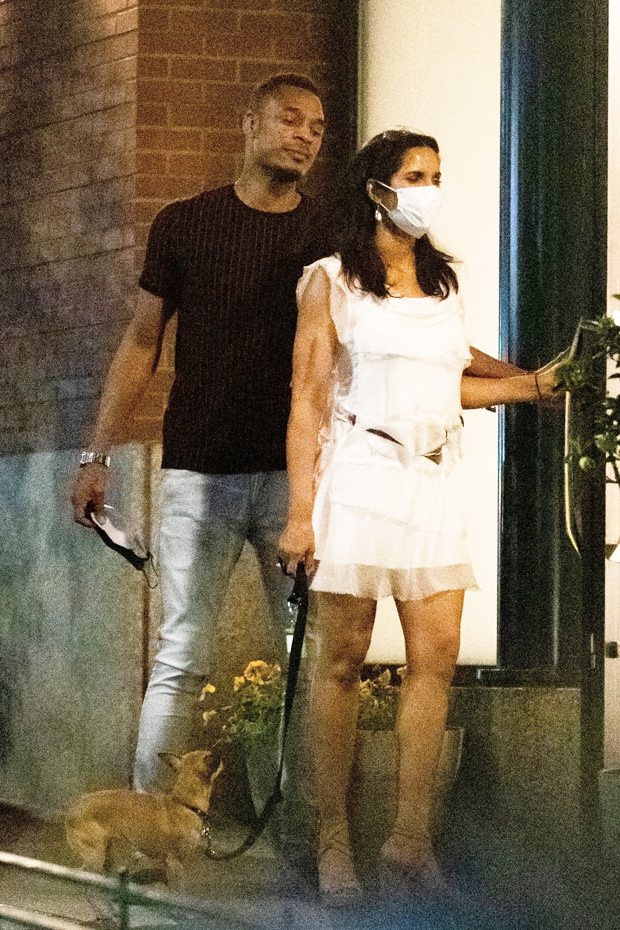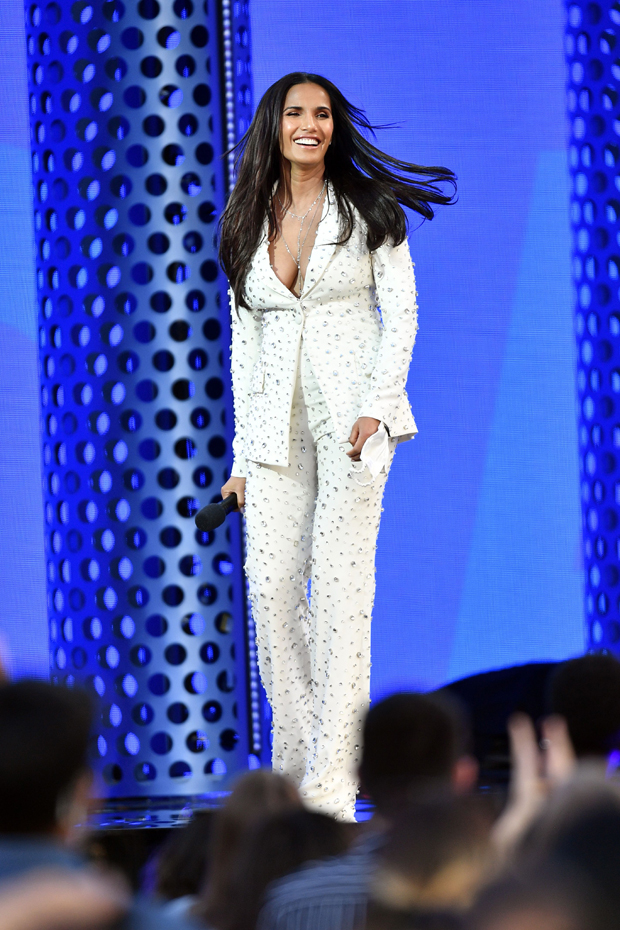
Padma Lakshmi and Terrance Hayes were spotted kissing and holding hands while walking her dog, Divina, in New York City on Monday (June 14) night, per People. Padma, 50, opted for a white summer dress and wedge sandals, while her new man kept it casual with a black t-shirt and jeans ensemble. Padma had been in an on-again/off-again relationship with venture capitalist Adam Dell since 2009, but Page Six reports that the couple – who share an 11-year-old daughter named Krishna Thea – called it quits earlier this year. The breakup was amicable, according to Page Six, and Padma apparently has moved on. So, as she enjoys this new romance, here’s the scoop on her new man.

1. Terrance Hayes Is A Poet.
Terrance Hayes, 49, is an award-winning, celebrated poet and education hailing from Columbia, South Carolina. As of 2021, he has seven poetry collections, including Muscular Music (1999), Wind In a Box (2006), and Lighthead (2010), which was awarded the National Book Award. Terrance, per his official website, has also won the Poetry Foundation’s 2019 Pegasus Award for Poetry Criticism, the Hurston/Wright 2019 Award for Poetry, and the 2018 Kingsley Tufts Poetry Award.
Terrance, according to the Poetry Foundation, has taught at Carnegie Mellon University, the University of Alabama, and the University of Pittsburgh. He is currently a professor of English at New York University.
2. Terrance Is A Father.
Terrance was once married to Yona Harvey, a fellow poet, and professor at Pitt. They have two children together. “This is why I just want to leave my kids my poems,” he said in 2018, per Poets & Writers. “I want to leave them art…Money is nothing to be governed by, because once you get it, it’s never enough. When I die, I want my kids to have my art. Surely that will be worth something one day.”

3. He Played Basketball In College
“Yeah, a full ride. In basketball,” Terrance told Literary Hub when asked about attending Coker College. “I was fine. I couldn’t do Division I, because I would have been a guard, and because I’ve been this tall since I was fifteen, I’ve always played inside, so I never really learned how to handle the ball.”
Terrance majored in fine arts because he thought that would lead to a position after school. “I didn’t really know any college graduates other than my teachers. I thought, maybe I’ll teach, and if I didn’t teach, maybe I’ll go work in the prison,” he told LitHub. While taking an Intro to Creative Writing, his professor got Terrance some extra encouragement.
“His name was Jack French, and he actually called up Maya Angelou for me when he was trying to convince me that I could do this.” After Coker, Terrance attended the University of Pittsburgh’s writing program and obtained his MFA.
4. He Sees Value In Both Shakespeare And Future.
While some artists might denounce pop culture as “low” art, Terrance is fine with having a well-rounded media diet. “Last year at Yale, some students protested, saying, ‘Why do we have to read all these white guys? Why do we have to read Shakespeare?’” he said in a conversation with Literary Hub. “I know because an article came back to me that said, ‘You should read Shakespeare and Terrance Hayes.” I agree with that, and I don’t see why it can’t be both.”
“I’m interested in Shakespeare, but especially how Shakespeare is in conversation with Scooby-Doo or The Walking Dead. You find that out especially as a teacher,” he added. “I was just doing a Q and A and bouncing between The Simpsons and Picasso. It was a room of low-residency MFA people in Tampa, and I said, ‘Half of you are going to get what I say about abstract expressionism, cubism, Rothko, and Picasso, and half of you are going to get The Simpsons, Lil’ Wayne, and Future…’ Why do I have to separate those out?”

5. He Contains Multitudes.
“I don’t think anybody is just a poet with no adjectives,” he told Literary Hub. “I wouldn’t limit it there: I would say, yes, I’m African-American; yes, I’m Southern; yes, I’m male; yes, I’m hip-hop; yes, I’m neurotic; yes, I’m a bastard poet. It’s all these other things, and the more, the better. The order of those things shifts depending on where I am that day: some days, I’m a male poet first, and that’s what’s really going to inform the work; a lot of days, I’m a black poet first, and that’s what’s going to inform it. But I don’t want to be tied to one adjective.”


